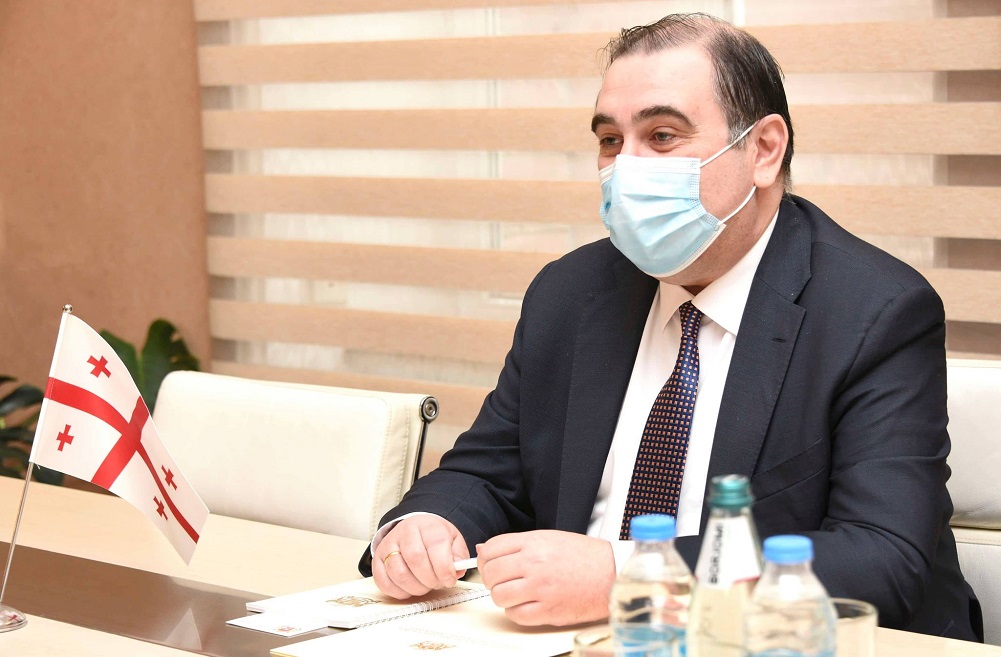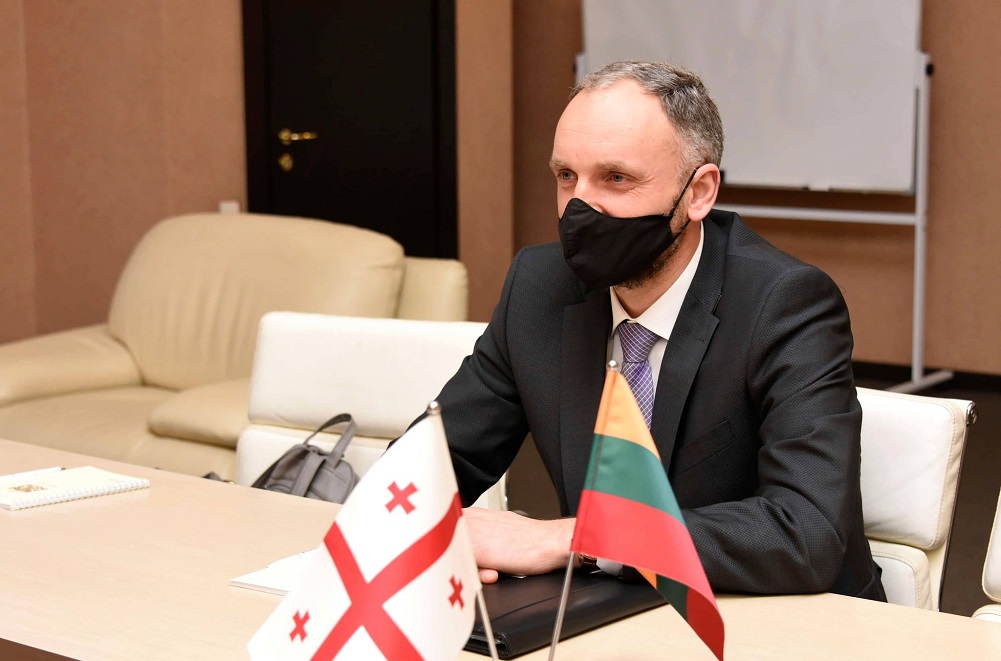The Minister of Education, Science, Culture and Sport of Georgia Mikheil Chkhenkeli hosted the Ambassador of the Republic of Lithuania to Georgia - Andrius Kalindra and discussed plans for future cooperation in all fields of education.
During the meeting, the parties shared their countries' experience in ensuring a continuous education process in light of Covid-19 pandemic. The Minister presented the findings and the general action plan, declared by the Coordinating Council to the ambassador. The plan envisages the return of teaching process to schools.
Mikheil Chkhenkeli briefed the Ambassador on the ongoing and planned reforms in the education system of Georgia and highlighted two important mega-projects - Kutaisi International University and the Hadron Therapy Center, which are the most important steps forward in the internationalization of higher education and science. A clear example of this is the current programs at the university, which were created in collaboration with the Technical University of Munich. Such an approach will be maintained, and in the coming years new academic programs will emerge for all three levels of university education, based on the academic programs of the world’s leading universities. Additionally, the fact that foreign professors are involved in everyday life of the university is of paramount importance to achieve true internationalization.
The Minister emphasized that the author of the idea and the entire concept of Kutaisi International University belongs to Mr. Bidzina Ivanishvili. As a result of his and his family's extremely important contribution, a world-class academic space has emerged in the country, which gives young people the opportunity to receive a higher level of education in Georgia.
Additionally, the Minister highlighted, that particular importance is given to the scientific-research aspect at Kutaisi International University. The project is fully funded and implemented by the International Charity Fund "Cartu". The Hadron Therapy Center will be established on the university premises, that will house two cyclotron-type accelerators, which are currently being manufactured by the world's leading manufacturer of cancer proton therapy equipment - IBA. One of the cyclotrons will be used to treat tumors with ultra-modern methods, whereas another one will be fully utilized for scientific research process in nuclear experimental physics, radiation biophysics and chemistry. Also, a proton therapy clinic will be founded, where oncological diseases will be treated with modern methods. It is planned that Georgia will join the international network of proton therapy centers.
Mikheil Chkhenkeli focused on the steps taken to promote the development of the quality of higher education and stressed the importance of introducing European standards in the country. According to him, the membership of the National Center for Quality Development in Education in the European Association of Quality Assurance Agencies (ENQA) serves this precise purpose. Along with Georgians, European experts are actively involved in the process of authorization of Georgian universities and accreditation of each program.
Mikheil Chkhenkeli noted that preparations are underway for a new EU program "Horizon Europe", which will pave the way for Georgia to integrate into the European scientific space. The number of exchange educational programs as well as joint scientific projects will increase in the future.
The sides also discussed the prospects of deepening cooperation in the field of culture and sports. For his part, Andrew Kalindra expressed readiness to expand the existing cooperation.
 |
 |






















